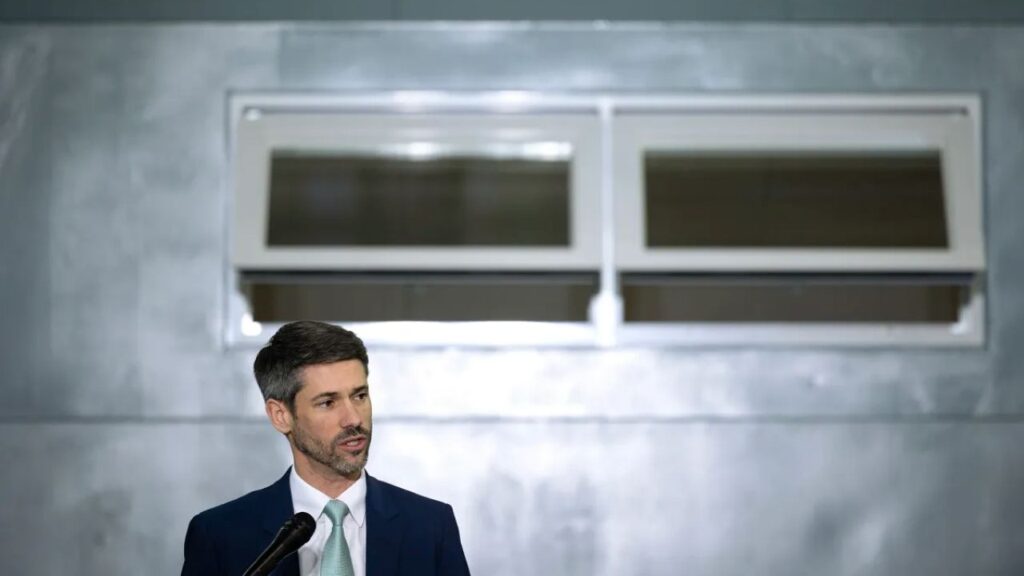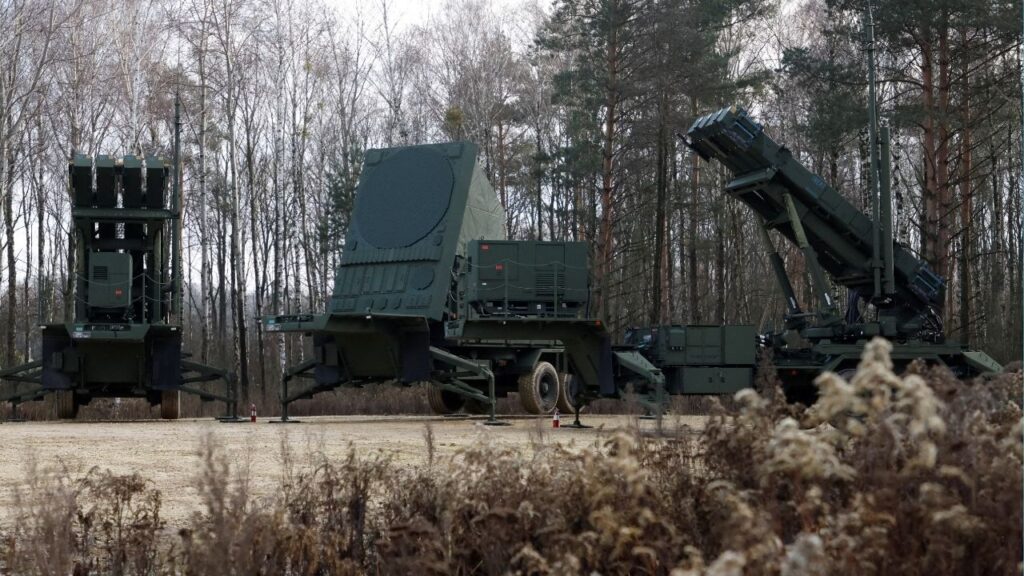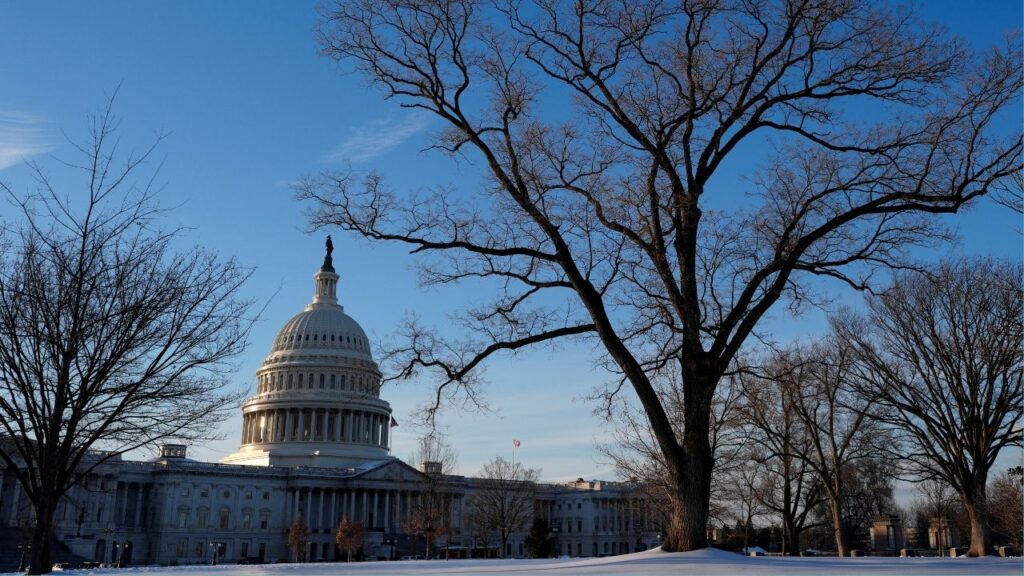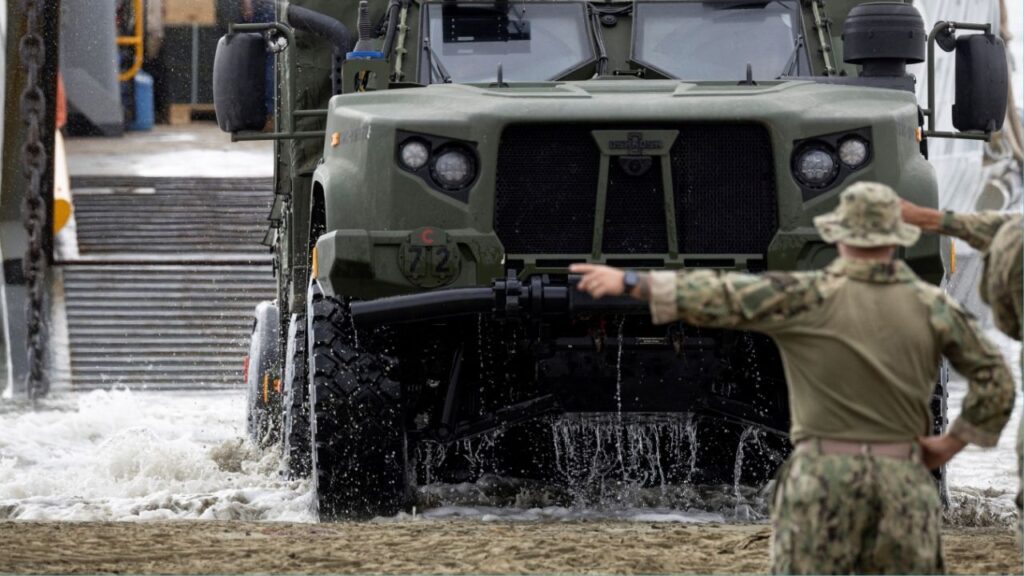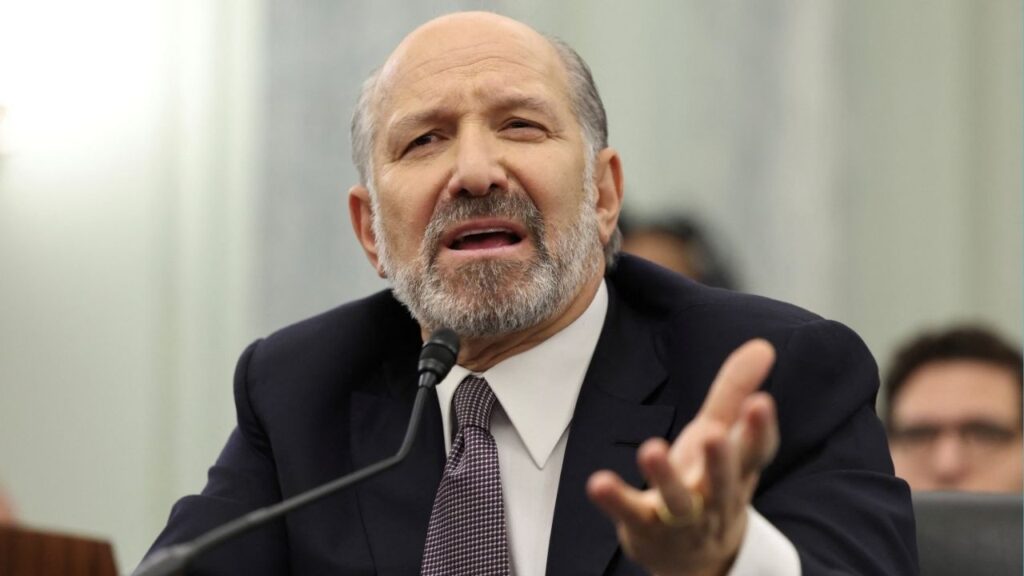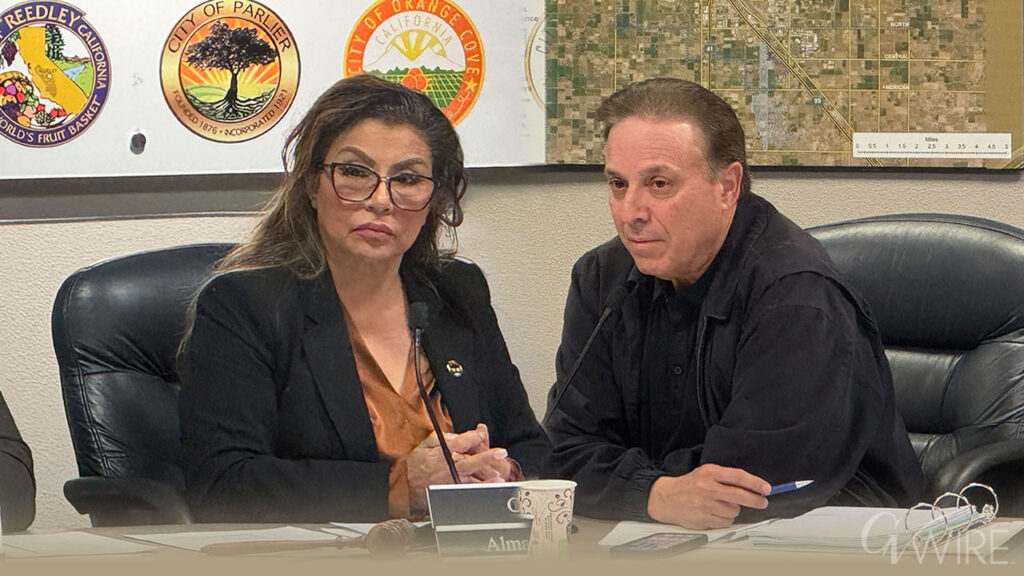Gov. Michelle Lujan Grisham declared a state of emergency, deploying National Guard troops to Albuquerque to address rising crime rates. (AP/Jessica Baca)

- Dozens of National Guard troops will be deployed along Albuquerque's historic Route 66 corridor starting mid-May.
- Troops will handle non-public-facing tasks like traffic direction and crime scene security to free up police officers.
- Civil rights groups express concern that militarizing law enforcement could lead to increased rights violations.
Share
ALBUQUERQUE, N.M. — Gov. Michelle Lujan Grisham on Tuesday declared a state of emergency in New Mexico’s largest city, saying that a significant increase in crime in Albuquerque warrants the help of the New Mexico National Guard.
She signed an executive order, clearing the way for several dozen troops to be deployed along the historic Route 66 corridor starting in mid-May. The order also frees up state funds for the National Guard to use as part of the effort.
Deployment Details and Funding
Training for 60 to 70 troops already is underway, the governor’s office said.
Governors typically call up the National Guard to help with natural disasters like wildfires, earthquakes, tornadoes and hurricanes. Governors in recent years also have ordered troops to address illegal crossings at the U.S.-Mexico border. In New York last year, the National Guard helped patrol the subway system following a series of high-profile crimes.
In New Mexico, Albuquerque Police Chief Harold Medina called it a crucial time for the National Guard to provide support that gives police officers more time to patrol the streets for crime.
Medina and Albuquerque Mayor Tim Keller pointed to a large chart during a news conference, saying nearly every category of crime has come down since the beginning of the year because of the work already being done by the police force.
Specific Duties Assigned to Troops
The National Guard will not be engaging with the public, they said, but rather taking on duties that drain the time of sworn officers, like directing traffic. The troops can help secure crime scenes, distribute food and supplies to the homeless population throughout the corridor, transport prisoners, provide courthouse security and run drone operations used for locating suspects or assessing incidents, officials said.
Watchdog groups have concerns that militarizing civilian law enforcement will lead to civil rights violations.
Daniel Williams, policy advocate at the ACLU of New Mexico, called the governor’s action a show of force, not a solution.
“New Mexico already has one of the highest per capita rates of people killed by police in the nation,” Williams said. “History has shown that military collaboration with local law enforcement often leads to increased civil rights violations, racial profiling, and criminalization of vulnerable populations, particularly those experiencing homelessness and poverty.”
Context and Previous Efforts
It’s not the first time Lujan Grisham has tried to leverage state resources to address high crime rates in Albuquerque. In 2021, the two-term Democrat temporarily assigned state police officers to the area to help local authorities tackle vehicle thefts, drug trafficking, aggressive driving and the apprehension of violent criminals with felony warrants.
The year before, then-President Donald Trump sent federal agents, including Homeland Security officers, to Albuquerque as part of an effort to contain violent crime. He also targeted Chicago and other U.S. cities with the surge in resources.
Lujan Grisham’s latest emergency declaration follows a March 31 request by Albuquerque’s police chief, who pointed to the fentanyl epidemic and an increase in violent juvenile crime. Medina wrote that progress has been made in reducing shootings and aggravated assaults along what is known as Central Avenue but that more resources are needed.
The New Mexico Legislature adjourned last month, drawing much criticism from law enforcement leaders, prosecutors and even the governor for failing to adequately bolster public safety in Albuquerque and other New Mexico communities.
Statistics released by the Albuquerque police department in February showed an 11% decrease in aggravated assaults in 2024 compared to the prior year, while homicides decreased for a second straight year.





